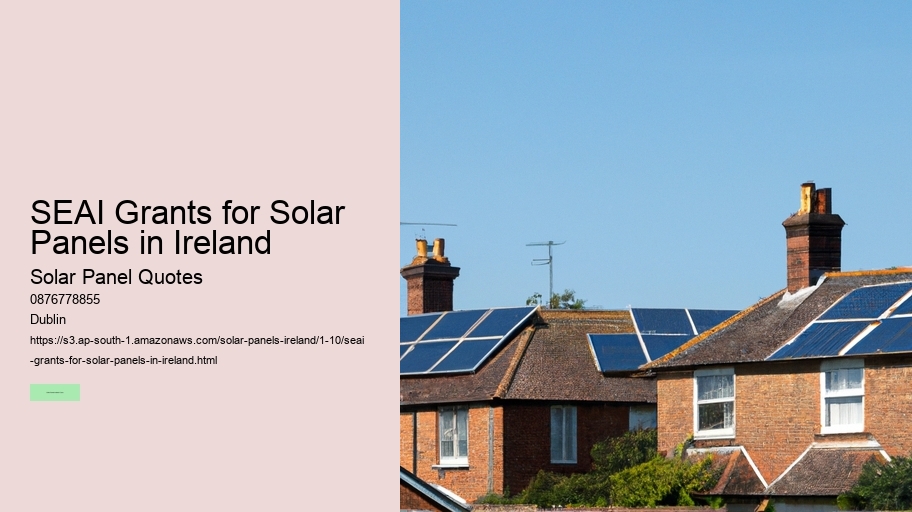

They also complement electric vehicles and battery chargers, offering a cohesive solution for sustainable energy needs. For most homes, the number of solar panels required depends on factors like electricity consumption, roof size, and orientation. Solar panels are designed for durability, with most manufacturers offering warranties of 20 to 25 years.
Microgeneration empowers homeowners to take control of their energy usage. Reputable companies offer comprehensive services, from system design to installation and maintenance.
Additionally, most solar systems come with warranties of 20 to 25 years, ensuring their durability and efficiency over the long term. For example, systems using high-efficiency monocrystalline silicon panels may cost more than those with polycrystalline silicon panels but deliver better energy output per square meter of roof space. The durability of solar panels further strengthens their cost-effectiveness.
Reputable solar panel companies in Ireland offer comprehensive services, from site assessments to customized system designs. For households with shading issues, optimizers can enhance energy production by mitigating the impact of partial shading on the roof.
Solar thermal energy systems can heat water efficiently, reducing the need for gas or electric heating and further cutting down on energy costs. Polycrystalline silicon panels provide a more economical option, though with slightly reduced efficiency.
These systems not only lower electricity prices but also align with global trends toward sustainable living. Homes equipped with rooftop photovoltaic systems and energy storage solutions are seen as energy-efficient and future-ready, making them desirable to potential buyers.
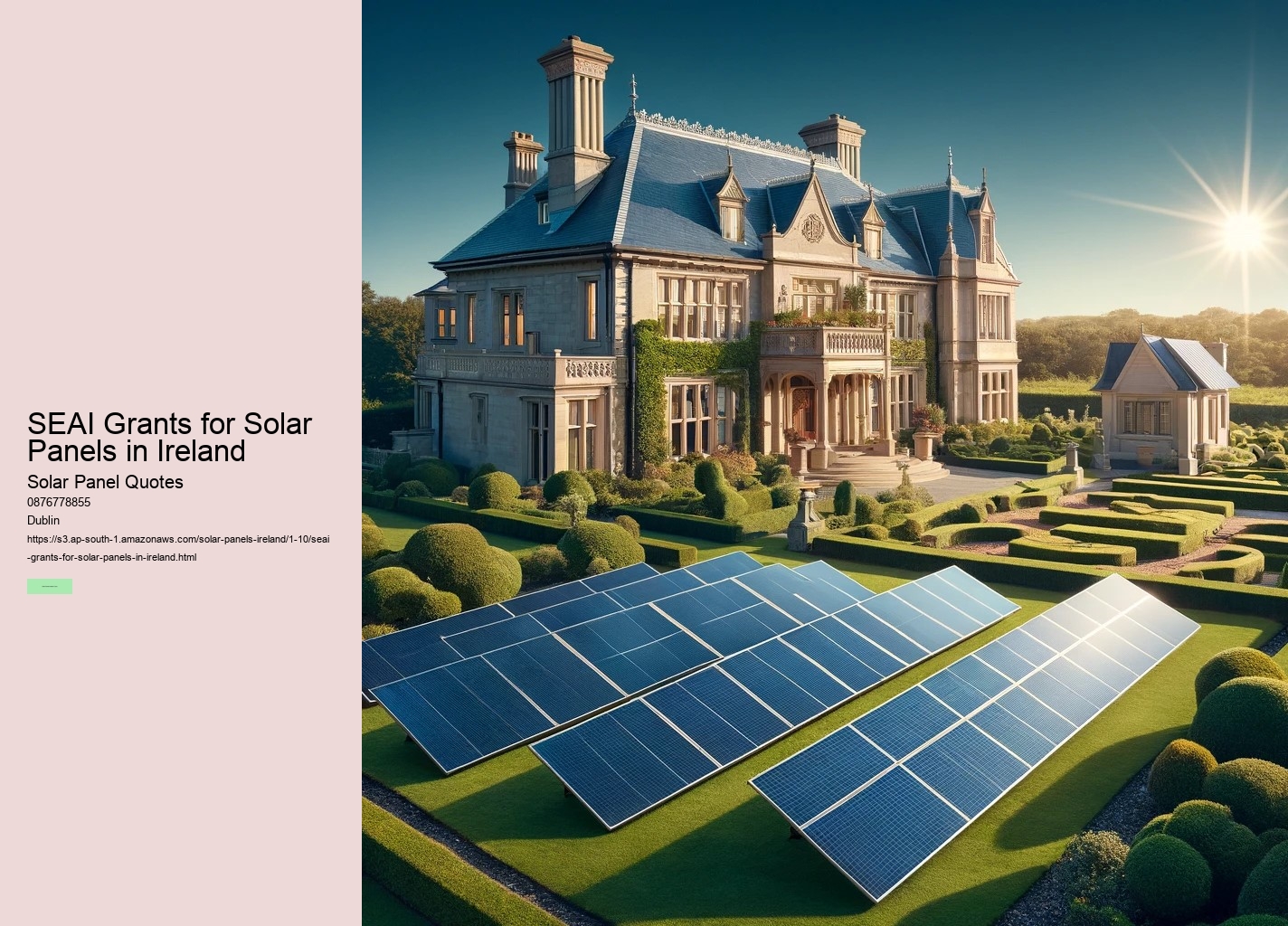

Durability is another advantage of modern solar panels. Batteries also provide backup power during outages, ensuring consistent energy availability. The cost of electricity by source continues to rise, making solar energy an increasingly attractive alternative.
By generating electricity from sunlight, homeowners reduce greenhouse gas emissions and their dependence on fossil fuels. When choosing a solar panel provider, it's important to consider experience, certifications, and customer reviews.
While not essential for all installations, batteries provide flexibility and resilience. Battery storage is another key consideration.
The role of solar in reducing the carbon footprint of homes and businesses cannot be overstated. Smart meters track energy production and consumption, enabling homeowners to monitor their systems efficiently.
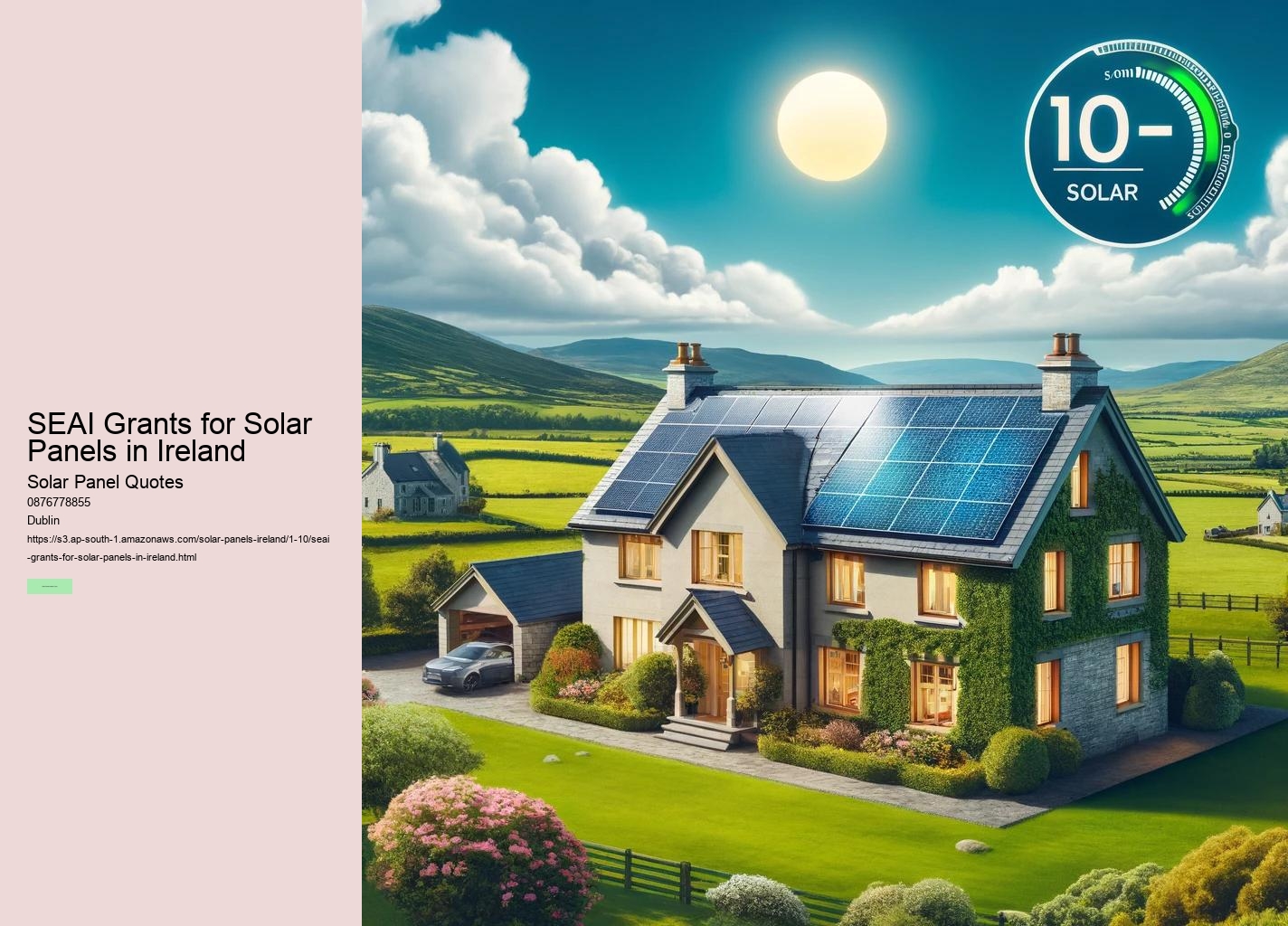
While fossil fuel prices fluctuate, solar panels provide predictable savings and a defined payback period, usually between five to seven years. These features make it easier for homeowners to manage their energy systems and maximize savings. During this time, homeowners recoup their initial investment through energy savings and, in some cases, income from selling excess electricity back to the grid.
Optional features, such as shading optimizers or advanced inverters, can improve performance while adding to the initial investment. Regular cleaning and occasional inspections ensure that the panels operate at peak efficiency.
The cost of installing solar panels in Ireland typically ranges between €6,000 and €18,000. With support from SEAI grants, zero VAT, and the feed-in tariff system, switching to solar energy has never been more accessible.
Regular cleaning to remove dirt and debris ensures optimal performance, while modern systems are designed to last for 20 to 25 years or more. Any surplus energy generated can be stored or sold back to the grid, further lowering costs and supporting sustainable energy development.
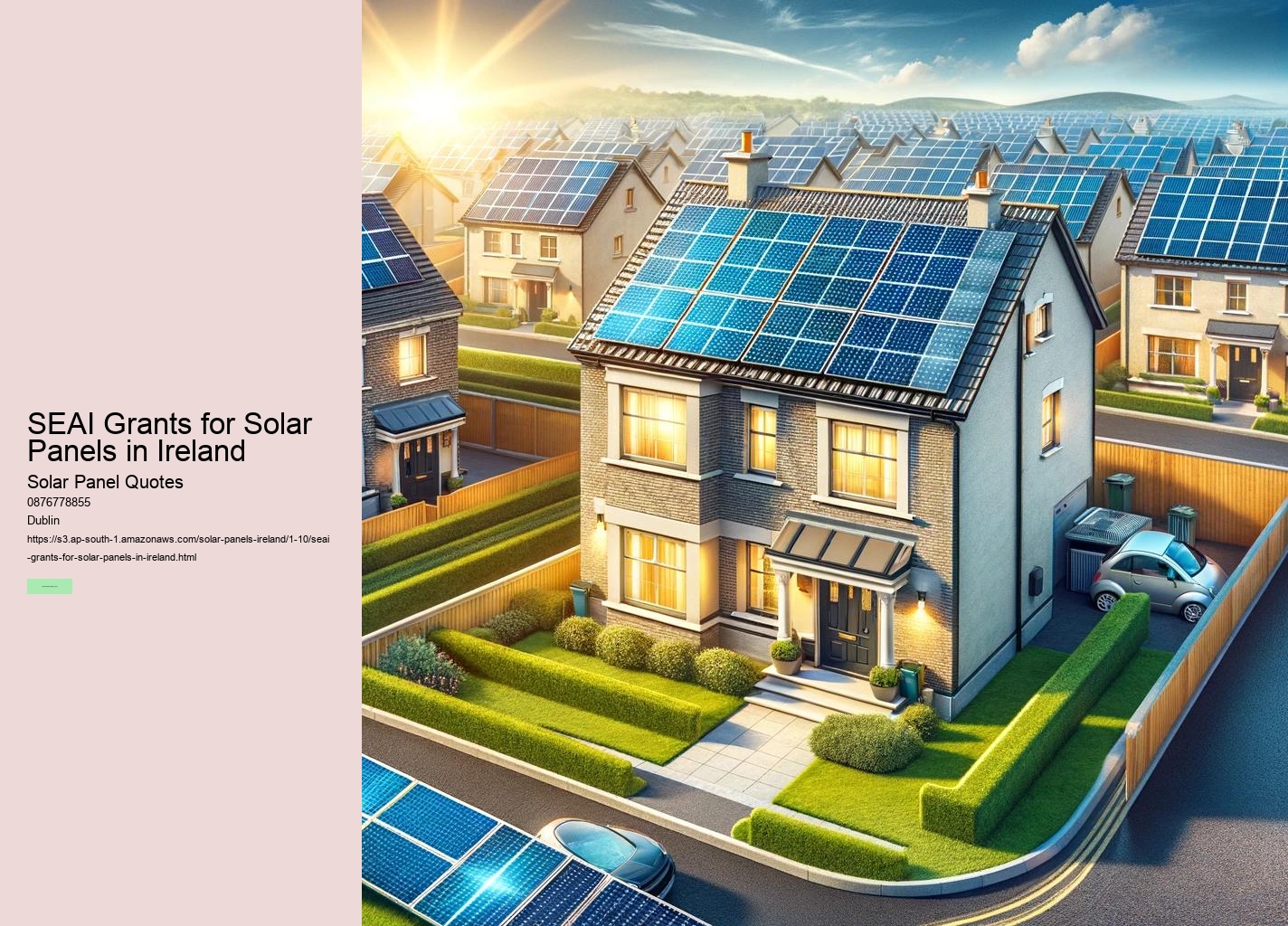
For a standard three-bedroom home, these costs are offset by grants and incentives, making solar power increasingly accessible. Solar panels have gained popularity in Ireland due to advancements in photovoltaic systems and supportive government initiatives. For those considering solar panel installation, the combination of financial incentives, advanced technology, and environmental benefits creates a compelling case.
During this time, the cost of installation is recovered through savings on electricity bills and potential earnings from selling excess energy back to the grid. By installing a rooftop photovoltaic system, you take an active role in reducing your carbon footprint and supporting Ireland's energy transition.
The efficiency of solar panels has improved significantly over the years. By choosing solar energy, homeowners not only save money but also take an active role in shaping a more sustainable future.
Adding a rechargeable battery to the system allows surplus electricity generated during the day to be stored for later use, reducing reliance on the electrical grid. While the initial investment might appear significant, the benefits-ranging from lower electricity bills to a reduced carbon footprint-make solar panels a smart, sustainable choice.
Excess energy can be stored in batteries or exported back to the grid, creating additional savings or income through feed-in tariffs. Advances in technology, particularly in monocrystalline silicon panels, allow for greater energy production within smaller areas. By generating clean, renewable energy, solar power reduces your household's carbon footprint and helps combat climate change.
Polycrystalline silicon panels offer a cost-effective solution with slightly lower efficiency, while Thin-film solar cells can be a practical option for specific applications. On average, homeowners in Ireland recover their initial investment in five to seven years through reduced electricity bills and earnings from exporting excess electricity to the grid via the Microgeneration Support Scheme.
The inclusion of optimizers for shading or advanced solar inverters can also affect the overall price. By choosing solar panels, homeowners in Ireland can harness the power of the Sun to meet their energy needs.
The benefits of solar panels extend beyond individual households.
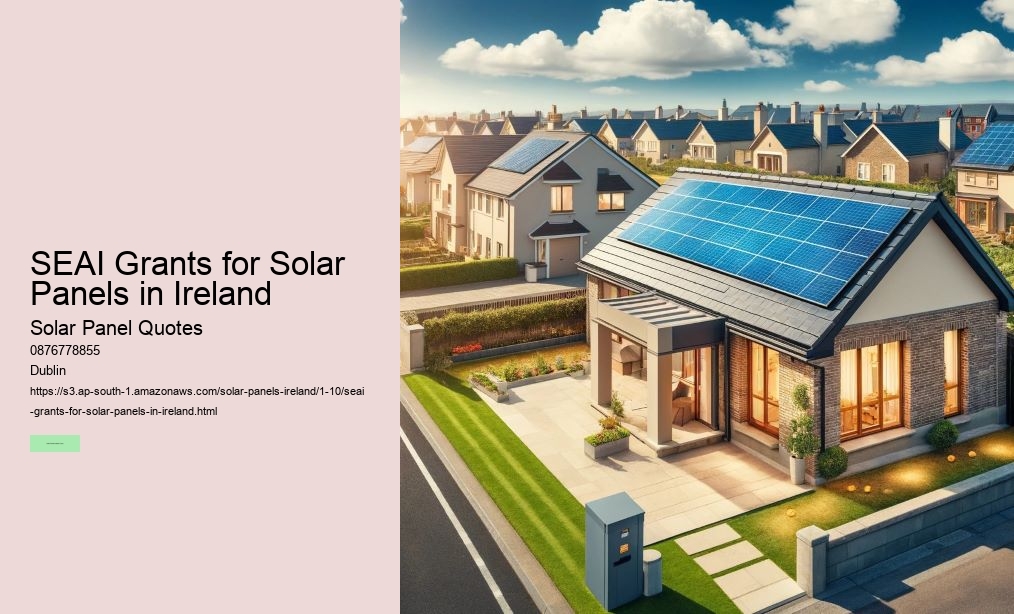
Solar panels typically pay for themselves within 5 to 7 years in Ireland through savings on electricity bills.
Yes, there are several financing options available in Ireland for solar panel systems, including loans, leases, and Power Purchase Agreements (PPAs).
Monocrystalline panels are made from a single crystal structure and are more efficient, while polycrystalline panels are made from multiple crystal fragments and are more cost-effective.
While solar panel efficiency can be impacted by Ireland’s variable weather, modern technology allows panels to still generate significant energy even on cloudy days.
While solar panel efficiency can be impacted by Ireland’s variable weather, modern technology allows panels to still generate significant energy even on cloudy days.
Yes, given the rising cost of electricity and the availability of government incentives, solar panels are a financially sound and sustainable investment in Ireland.
Yes, installing solar panels can increase home value by improving energy efficiency and attractiveness to potential buyers who value sustainability.
The average cost of installing solar panels in Ireland ranges from €6,000 to €18,000, depending on the size and specifications of the system.